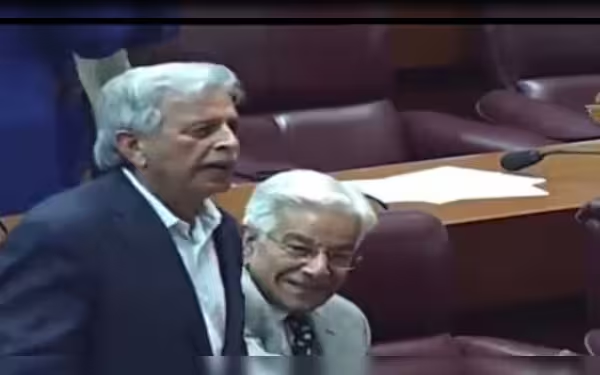Thursday, July 4, 2024 06:13 PM
Prime Minister's Absenteeism Sparks Criticism in Pakistani Parliament
- Opposition challenges government proposals and policies
- Disruptions caused by exploiting quorum rules
- Importance of leader's presence for upholding parliamentary norms
 Image Credits: News18
Image Credits: News18The Pakistani parliament faces frequent disagreements due to the Prime Minister's absenteeism, impacting legislative proceedings and parliamentary norms.
In the Pakistani parliament, the relationship between the opposition and the ruling party is marked by frequent disagreements and criticisms. The opposition often challenges government proposals and policies, leading to objections even from coalition partners of the ruling party. A notable point of contention is the absence of ministers and the Prime Minister during parliamentary sessions, which has raised concerns among both the opposition and coalition members.
One common tactic employed by the opposition is to disrupt proceedings by exploiting rules that require a minimum number of lawmakers, known as quorum, to be present. This strategy has resulted in numerous suspensions of parliamentary activities over the years. However, it can also backfire as the ruling party may struggle to maintain the required quorum at times.
The issue of absenteeism extends to the front benches, with the Prime Minister's consistent absence drawing significant criticism. Past leaders like Nawaz Sharif and Imran Khan faced censure for neglecting parliamentary duties, while others such as Yusuf Raza Gilani and Raja Pervez Ashraf were praised for their regular presence in the house.
Currently, Prime Minister Shehbaz Sharif's infrequent attendance in parliament has sparked disapproval from both the opposition and his own party members. Political and constitutional experts emphasize the importance of parliamentary norms and traditions, highlighting the significance of the leader of the house setting a positive example for other members.
Maintaining a strong presence in parliament is vital for nurturing a healthy democratic environment and upholding the integrity of legislative proceedings.













